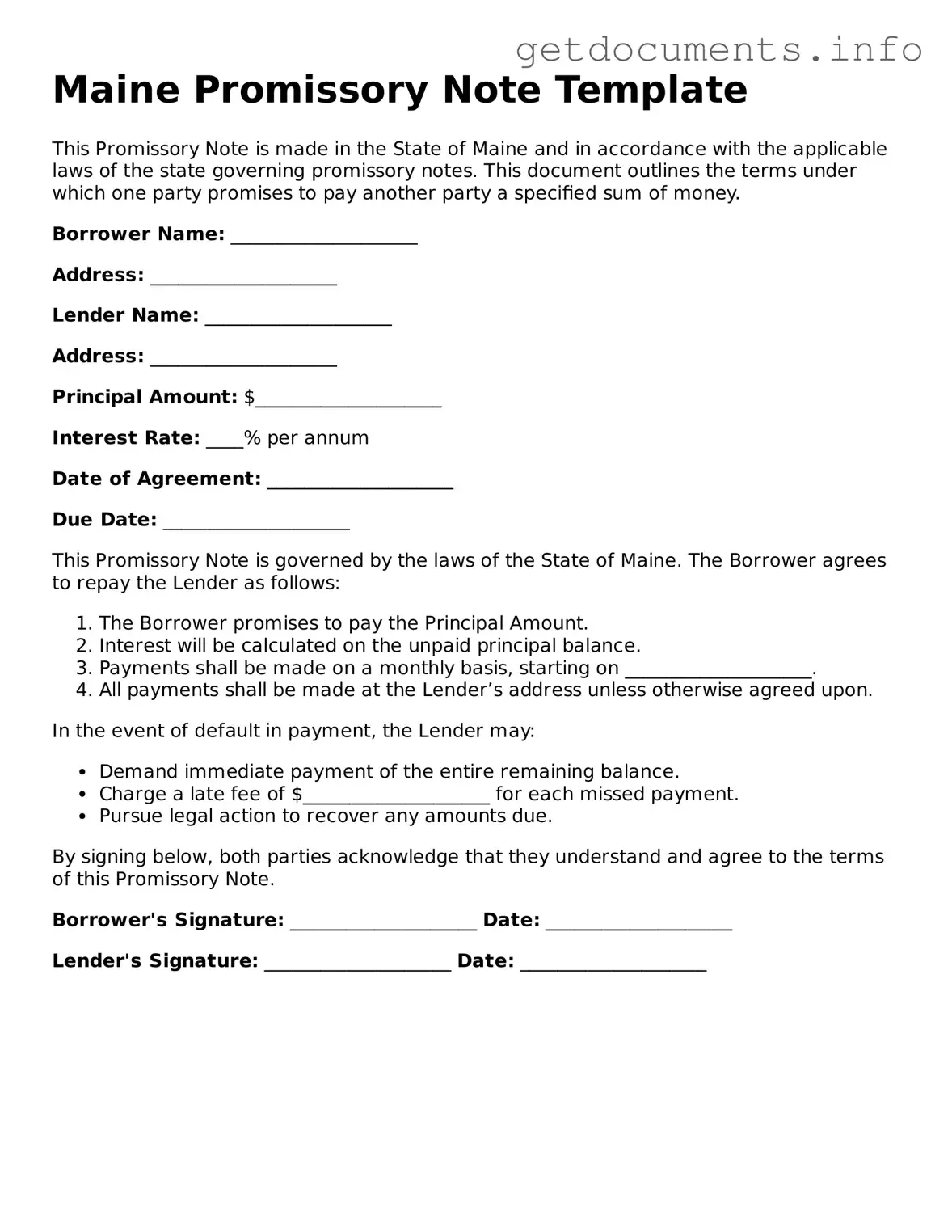Free Promissory Note Template for Maine
A Maine Promissory Note is a legal document that outlines a borrower's promise to repay a loan to a lender under specified terms. This form serves as a crucial tool in ensuring clarity and accountability between both parties involved in a financial agreement. To get started on your own Promissory Note, fill out the form by clicking the button below.
Access Promissory Note Editor

Free Promissory Note Template for Maine
Access Promissory Note Editor
Got places to be? Complete the form fast
Fill out Promissory Note online and avoid printing or scanning.
Access Promissory Note Editor
or
⇩ PDF File
